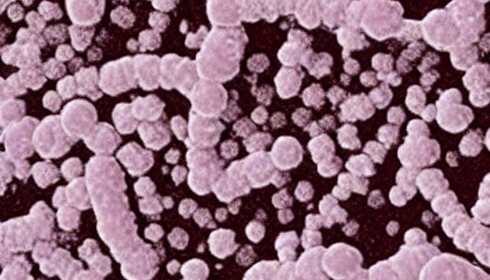
Gut Molecule May Guard Against Influenza, Research Shows
Researchers from the State University of Campinas (UNICAMP) in Brazil and the Pasteur Institute in France have shown that a molecule that naturally exists in the gut can help protect against the flu in animal model.
IPA, a molecule, was shown to lower flu virus load and inflammation in the lungs of mice when given in a synthetic form. The journal Gut Microbes published the study about treating or preventing the flu.
The flu virus typically causes large-scale epidemics, and these positive results suggest that IPA could one day be used to treat or stop these infections. However, Marco Vinolo, the co-author of the study and a professor at UNICAMP, asserts that further research is necessary to validate the results in humans and enhance our understanding of IPA's mechanism of action.
The São Paulo Research Foundation (FAPESP) paid for the study, which was part of a bigger project. The project looked into how the body reacts to substances that gut bacteria make when there is inflammation. First, French François Trottein's studies exposed mice to the H3N2 flu virus. The study says that the mice's IPA levels dropped as the infection went on.
To test how useful it was, they gave the mice a man-made version of IPA. After this treatment, there were fewer viruses and swellings in the mice's lungs.
The study's second author, Vinicius de Rezende Rodovalho, described how they analysed the data using the UNICAMP bioinformatics tools. The study found the genes and functions of gut bacteria that changed when the person got an infection. The study also examined the chemicals produced by the bacteria and the symptoms of the disease.
When these researchers put these data together, they made a network of correlations that showed how important IPA is. Further research revealed that administering IPA to the animals led to a reduction in inflammation and the flu virus. As a result, new flu treatments based on microbiomes may focus a lot on IPA.
IPA is made when bacteria in the gut break down tryptophan, which is an important nutrient found in foods like soy, wheat, corn, and animal products. Previous research has demonstrated the potential of IPA to treat metabolic diseases, reduce inflammation, and regulate blood sugar levels.
Because IPA might help treat the flu, the researchers applied for a patent in the European Union. Besides that, they plan to do more research and drug tests.
"We're looking at the role of IPA during infection by SARS-CoV-2, the virus causing COVID-19," he said, "and the results have been similar thus far." We also want to look at what role it plays in catching bacteria.
This study reveals new applications for IPA and other naturally occurring gut chemicals to enhance health and fend off infections.